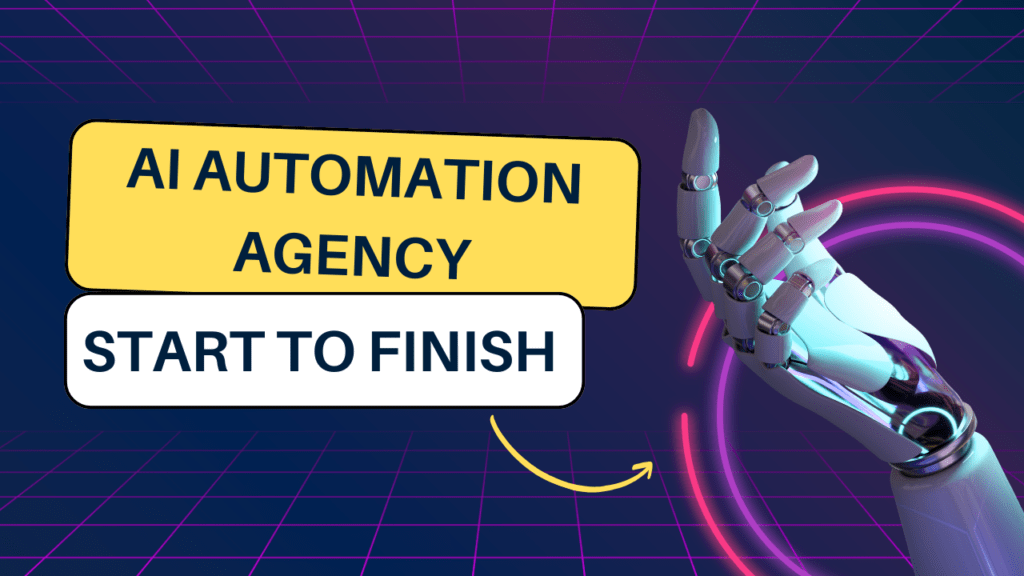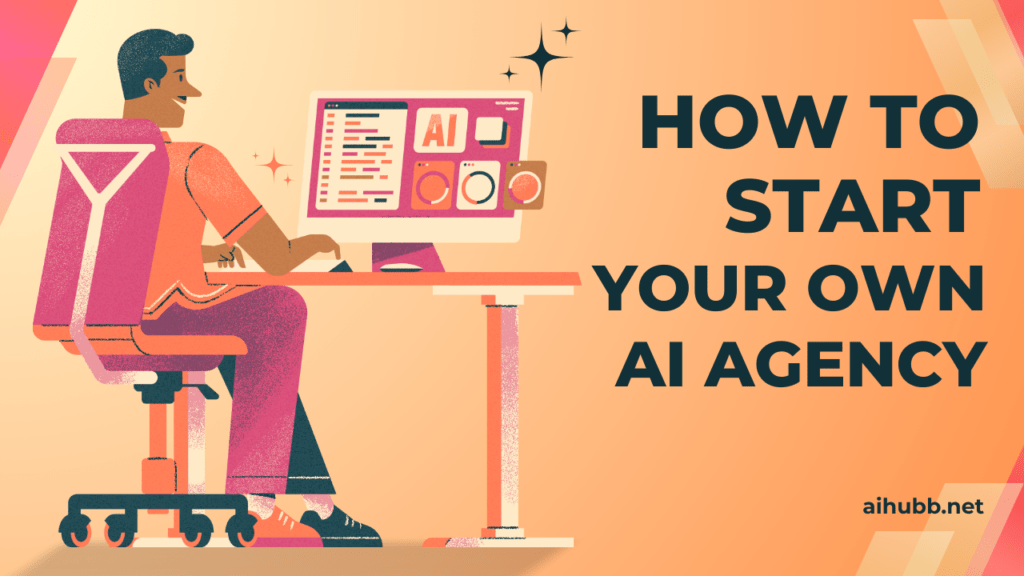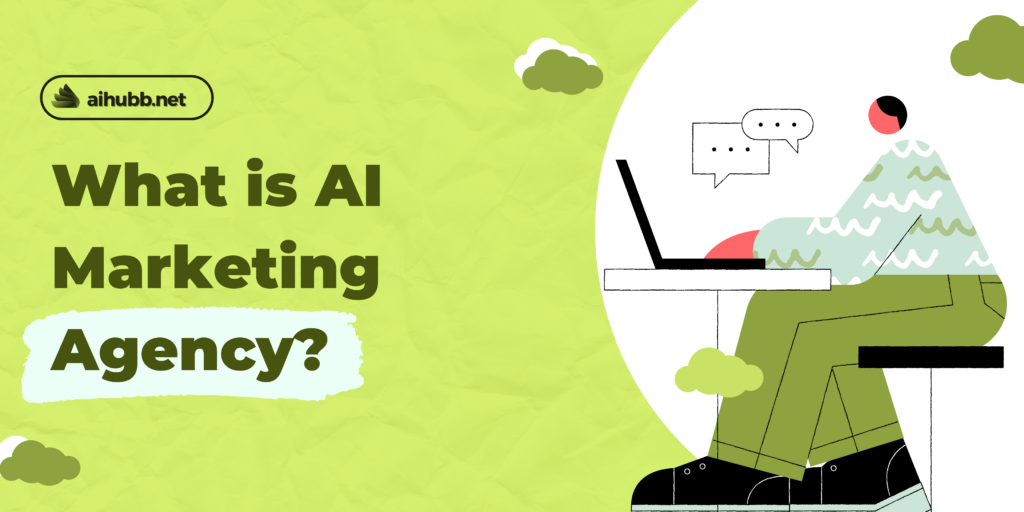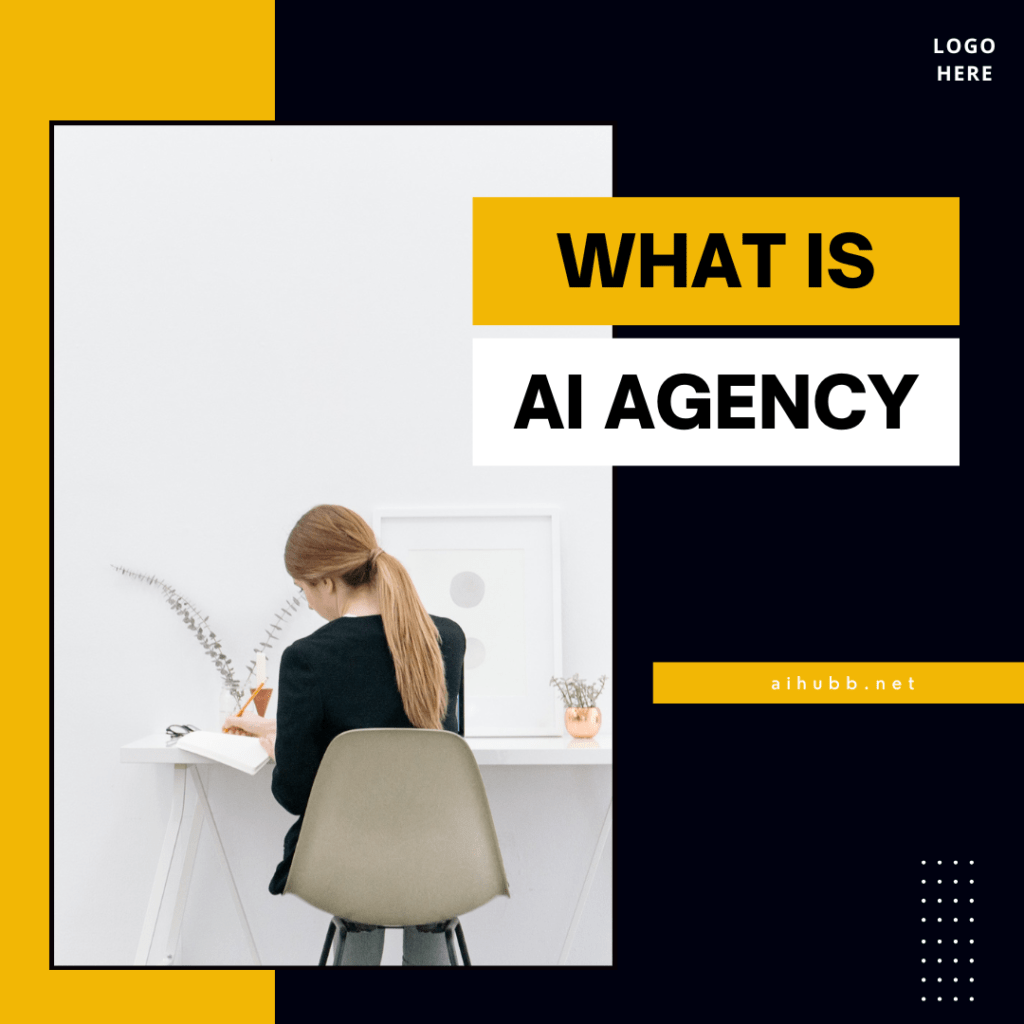Marketing Agencies and Artificial Intelligence, two words that don’t sound like they go too well together, do they? Well, we can say they don’t go too well at the current moment, at the very least. AI vs Marketing agencies is a much more broad topic than we think it is.
The current situation all around the world of technology may suggest that both of them are miles apart from each other. But it is actually really far from the truth.
Statistics suggest that by 2028, the value of AI in marketing is projected to exceed $107.5 billion, reflecting its transformative role in the industry according to Sixth City Marketing. This shows us a glimpse of the promising future that AI wants to show in the industry. The growth numbers don’t lie to you either, Among B2B marketers using chatbots, 26% reported a 10-20% increase in lead generation.
Since the statistics can’t directly predict the future, questions will certainly arise regarding the upcoming trends in marketing. In this blog, we will cover everything we possibly can in order to give our readers a proper vision of the type of future that will be set up in the next couple of years in the broad world of marketing.
Check our table of contents to know what is coming up next:
What is the Difference Between AI Agency and Digital Marketing Agency?
The difference between an AI Agency and a Digital Marketing Agency is very simple. A marketing agency will focus only on the marketing of your brand/ your content. While on the other hand, an AI Agency will specialize in finding the problems that your business is facing in ANY segment, and it will provide you an AI based solution to that problem.
A marketing agency will be willing to use mainly the tools related to Ads, SEO(Search Engine Optimisation) etc. However, an AI Agency will be willing to ensure the usage of all kinds of tools, whether automated or not, to ensure productivity and an automated system for your business.
Key Takeaway: A Marketing Agency focuses on human-driven strategies, creative campaigns, and a blend of traditional and digital marketing methods. Meanwhile, an AI Agency will focus mainly on creating an automated system regarding any problem that your business is facing, and it’s main goal is to ensure a more productive system and cut costs.
How AI is Used in Marketing Agencies
Content Generation
Content generation actually needs no explanation. The integration of various GPTs like ChatGPT, Gemini and others let the user generate product descriptions, video transcripts and large amounts of content ideas if prompted correctly.
Not only that, a staggering 64% of all content uploaded to Google in 2024 was either written directly by AI, or it was refined to some extent using it. This goes on to clearly show the amount of sheer influence AI tools have in the current world of content.
Not to mention, many popular youtubers are now also using AI tools not only to write scripts for their content but also generate the entire video as a whole.
Thus, Marketing Agencies can use these tools in order to create better content to cut time, and costs for various campaigns. This is sure to become one of the greatest tools for a company or agency to create mass amounts of content within a very short period of time.
Data Analysis
Data analysis is also one of the sectors that AI will dominate in the current world. Thanks to the almost all the same tools that help to generate scripts, Data analysis of large amounts is possible by using AI tools.
For example, let’s say an e-commerce store wants to analyse any type of statistics of their customers and their enquiries. For this the business needs to collect and insert all of the data into an AI tool for it to instantly analyze and provide insights based on the data.
No tool in the entire world is possibly good enough to beat the human brain and it’s strategic thinking capabilities. However, the power that these tools hold in order to mass analyze huge amounts of data is still very underrated.
Customer Segmentation
We can continue for this from the previous point itself. AI excels at processing large amounts of data to identify trends and patterns in customer behaviour. For example, various models can segment audiences based on purchase history, browsing habits, demographics, and even social media interactions.
This precise segmentation enables marketers to create highly personalized campaigns. For instance, an AI-driven tool might identify a group of users interested in eco-friendly products and tailor messaging to highlight sustainability features, increasing engagement and conversion rates.
AI also adapts these segments in real time, ensuring marketers can respond quickly to changing consumer behaviours, such as seasonal trends or sudden spikes in interest for a specific product category.
Ad Optimization
Dynamic ad placements are a key feature, where AI identifies the best-performing ad creatives and allocates budgets in real-time to maximize ROI on ad-spend.
Bid optimization is a key feature that ensures businesses get the best value for their advertising dollars. AI algorithms evaluate competitor bids and audience behaviours, adjusting bids dynamically to ensure ads are displayed to the right people at the right time.
Additionally, predictive analytics provided by AI enables marketers to anticipate future trends, helping agencies stay proactive rather than reactive in their ad strategies.
How is AI Affecting Digital Marketing Agencies?
The impact that AI is having on agencies is immense, and it is gradually growing with time. Many Marketing firms are gradually integrating AI tools in their systems so that the manual work is less, and the efficiency remains at a maximum level.
Repetitive tasks, which are pretty much a nuisance for almost every single business out there can be conduct by these tools. Honestly, if I say that the most dangerous tool in the world is an AI which is properly trained, I wouldn’t be wrong.
The integration of AI Marketing Agencies will also cause a shift in roles for many jobs like copywriters, data analysts into prompt-engineers. What I mean by that is, the better a copywriter will be at using prompts to refine his content, the more steps he will be ahead of his competition.
Will AI Replace Digital Marketing Agencies?
No, AI will not replace Digital Marketing Agencies in any given situation, at least not in the next 3-5 year period or so.
While AI can handle tasks like content creation and data analysis, it lacks the human touch for strategy, storytelling, and understanding complex brand needs. Agencies that adopt AI as a tool rather than a replacement are more likely to thrive.
Jobs AI Will Replace in Marketing Agencies
- Data Entry Roles: AI-powered tools automate tasks such as inputting, organizing, and managing data, significantly reducing the need for manual intervention in these areas.
- Basic Copywriting: Generative AI tools like ChatGPT and Jasper can produce ads, taglines, and even blog posts with minimal human oversight, replacing entry-level copywriting positions.
- Routine Customer Service Tasks: AI chatbots like Intercom and Zendesk automate repetitive queries, allowing businesses to provide 24/7 support without human agents.
- Basic Analytics Reporting: Platforms like Tableau and Power BI utilize AI to generate detailed analytics dashboards automatically, minimizing the role of junior analysts in compiling reports.
- Social Media Scheduling: Tools like Buffer and Hootsuite now include AI features that automate posting schedules, replacing manual social media management for smaller-scale campaigns.
Jobs AI Will Create in Marketing Agencies
- AI Strategy Consultants: These professionals help businesses integrate AI technologies into their operations, tailoring solutions to specific needs and industries.
- Prompt Engineers: As AI tools rely on well-crafted prompts to function effectively, these experts design and refine input queries to maximize AI performance.
- Machine Learning Specialists in Marketing: Specialists who develop and train AI algorithms to enhance marketing strategies, including predictive analytics and consumer behavior modeling.
- AI Ethics Managers: Professionals dedicated to ensuring AI tools are used responsibly, addressing concerns like data privacy, bias, and compliance with legal standards.
- Creative Technologists: A blend of marketing expertise and technical knowledge, these individuals use AI to create innovative campaigns that merge technology and storytelling.
- AI Trainers and Supervisors: Specialists who train AI systems by providing labeled datasets and ensure their accuracy through ongoing monitoring and adjustments.
Thoughts and Opinions From Experts
- AI as a Marketing Partner
Dharmesh Shah, co-founder of HubSpot, views AI as a “digital teammate” that handles repetitive tasks, freeing marketers to focus on creativity and strategy. He emphasizes that while AI excels in efficiency, human oversight is essential to ensure quality and relevance in marketing efforts. Podtail HubSpot Blog. - Transforming Marketing Roles
Experts like Andrew Yang and Jeremy Kahn highlight that AI is reshaping marketing roles by automating tasks such as basic analytics and customer support. They believe AI allows marketers to shift towards supervisory and creative positions, overseeing AI systems and focusing on innovative campaigns. This transition enables businesses to use AI for routine tasks while reserving human input for emotional and strategic work. HubSpot BlogHumans of Martech. - AI in Consumer-Focused Marketing
Dare Obasanjo, a tech leader, points out that AI’s impact is strongest in industries like B2C marketing, where data drives adoption. He argues that roles with minimal creative input are at risk, but this opens opportunities for marketers to innovate and design unique, human-centric strategies that machines cannot replicate. Humans of Martech.
These perspectives show a future where AI and humans work together, with AI enhancing efficiency and humans delivering creativity, empathy, and strategic thinking.
Final Thoughts
AI is rapidly transforming the marketing industry, offering tools to improve efficiency, precision, and scalability.
While it may replace some routine jobs, it also creates new opportunities for innovation and strategic roles.
The key takeaway is balance—leveraging AI for what it does best while retaining the human touch for creativity and empathy. Marketing agencies that embrace this synergy will remain competitive and thrive in the ever-evolving landscape.
Read our blog to understand more about the detailed demographics of AI Marketing Agencies. Contact us regarding any kind of services for your business.




